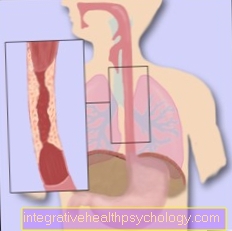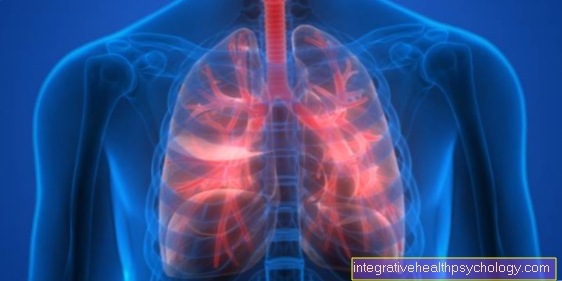Symptoms of runny nose
Typical symptoms of a cold

The symptoms of the runny nose are expressed as Rhinorrhea ("Runny nose"), increased sneezing and dry cough without sputum (unproductive cough). Fever, sore throat and muscle pain also often accompany a cold.
Rhinorrhea refers to the discharge of nasal secretions ("runny nose"). At the beginning of the cold, it is usually clear and fluid, but changes in color and consistency occur as the disease progresses.
The reason for this is that inflammatory cells migrate into the diseased mucous membranes and these are damaged in the course of the cold. This influences the secretion, which is expressed in the color and consistency of the secretion. A burning sensation in the nose is also often felt.
Sometimes a cold after a viral infection leads to a superinfection with bacteria. Such a superinfection - also known as a secondary infection - is understood as a colonization of the diseased cells with bacteria on the base of an existing viral disease. The bacteria infest the mucous membranes that have already been damaged during the cold, so that the symptoms change and the condition of those suffering from cold can worsen again.





























